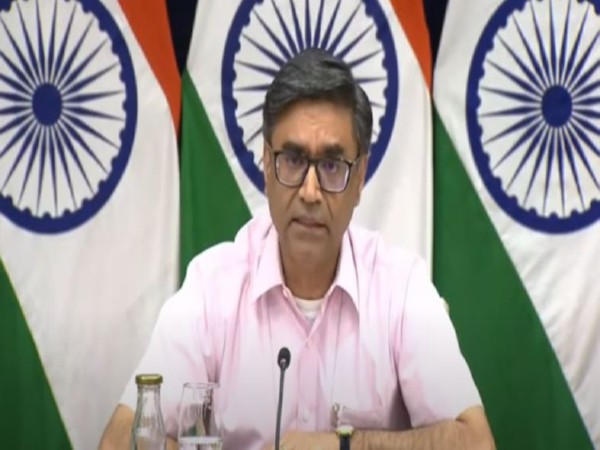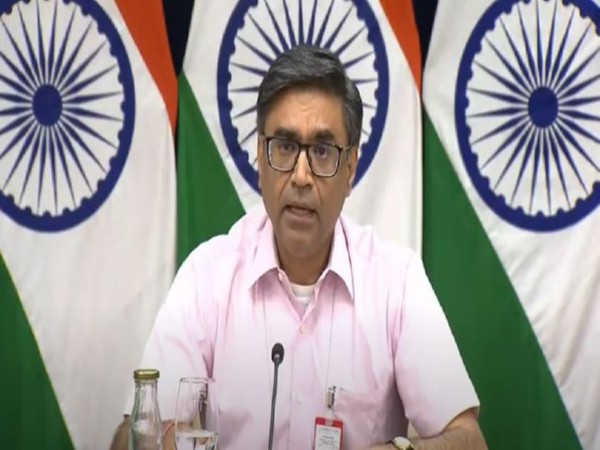Mandaviya raises concern at global forum over WHO's report on COVID excess mortality in India
May 23, 2022

By Shalini Bhardwaj
Geneva [Switzerland] [India], May 23 : Union Health Minister Mansukh Mandaviya on Monday raised concerns over the WHO's recent exercise on all-cause excess mortality in India in the 75th session of the World Health Assembly held at the global body's Geneva headquarters.
Earlier in March, the Health Ministry had objected to the use of mathematical models by the WHO for projecting excess mortality estimates concerning coronavirus and had said that the validity and robustness of the models used and the methodology of data collection were questionable.
"It is with a sense of dismay and concern that India notes WHO's recent exercise on all-cause excess mortality where our Country specific authentic data published by the statutory authority has not been taken into account," Mandaviya said.
Recently during Swathya Chintan Shivir, the Council of Health and Family Welfare, (CCHFW) which was attended by around 23 health ministers of the country passed a resolution against WHO's modelling estimates over deaths in India during the Covid-19 pandemic. The Council also said, "deeply disappointed and distressed" and "unacceptable to India".
During his address in Geneva, the Union Health Minister also mentioned about the action taken by the CCHFW stating "the Central Council of Health and Family Welfare, a representative body of Health Ministers from all States within India, constituted under Article 263 of Constitution of India, passed a unanimous resolution asking me to convey their collective disappointment and concern with WHO's approach in this regard".
Noting Prime Minister Narendra Modi's remark on the need to build a resilient global supply chain to enable equitable access to vaccines and medicines, the Minister said "India is ready to play a key role in these efforts as a responsible member of the global community".
"India believes that this year's theme linking peace and health, is timely and pertinent because there can be no sustainable development and universal health and wellbeing without peace," he added.
However, a technical officer at the department of Data and Analytics, William Msemburi laid down the statistics of the excess deaths in India.
"The reported Covid-19 number is 481,000 and the estimated excess is 4.74 million. So 481,000 reported COVID-19 numbers and then an excess mean of 4.7 million. The uncertainty around that is 3.3 million to 6.5 million. So, those are the estimated numbers for India," he said.
"Globally, we estimate 14.9 million excess deaths associated with the COVID-19 pandemic by 31 December of 2021. So, this estimate ranges from 13.3 million to 16.6 million. There are 4.4 million reported Covid-19 deaths to WHO over this period. So, this excess estimate represents 9.5 million more deaths or 2.75 times more deaths than reported," Msemburi added.
The official further said that most of the excess deaths are concentrated in Southeast Asia, Europe and the Americas.
"Low and middle income and upper-middle-income countries account for 81 per cent of this 14.9 million number, that's 52 per cent to low and middle income (countries) and 28 per cent upper-middle-income countries. Some 68 per cent of excess deaths are concentrated in just 10 countries," he said.
Meanwhile, after WHO's statement, Dr VK Paul, Member-Health, NITI Aayog, speaking to ANI, said, "Unfortunately, in spite of our emphatic writing, rational communication at the ministerial level, they have chosen to use the number that is based on modelling assumptions - one size fits all kind of assumptions."
"We understand that this report has covered what they label as excess mortality, in the yr spanning COVID19. India has been telling WHO via diplomatic channels with data that we don't agree with the methodology followed for us," said Dr Paul.
Also, DG ICMR Dr Balram Bhargava said, "Once we have this systematic data, we do not need to rely on modelling, extrapolations & taking press reports & utilising them for putting into a modelling exercise."
AIIMS Director said that data should be used to see the number of excess deaths that happened during this time and excess deaths that could be attributable to COVID and WHO didn't use that data.
"Secondly-- data that WHO used is more on hearsay evidence-- what's there in media or unconfirmed sources. That data is questionable. Modelling on that data isn't the correct and scientifically right thing to do, especially, when you have data that is more robust," he said.



















